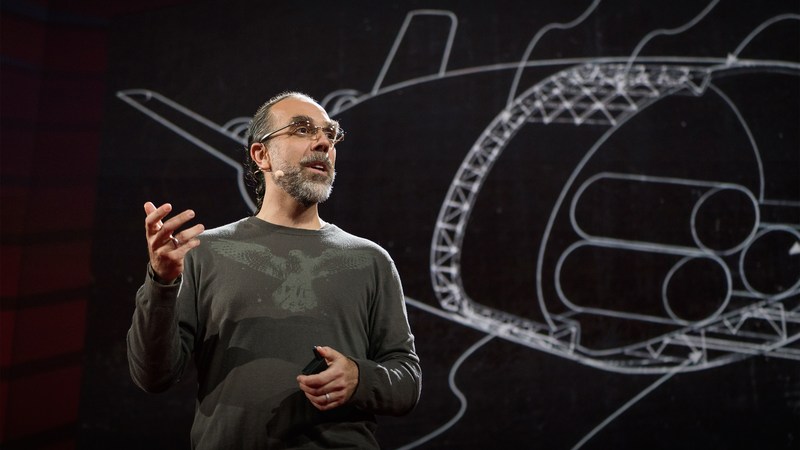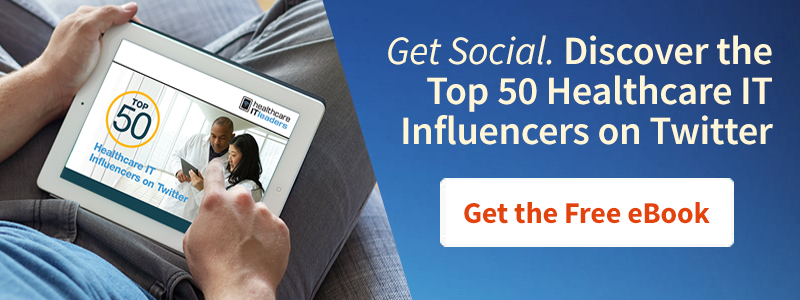7 TED Talks Healthcare IT Professionals Should See

In a workday filled with big projects, how much time do you leave for big thinking? Probably not much if you’re a typical healthcare IT professional working in what author Daniel Forrester calls “a constant fog of action and immediacy.”
Here’s our suggestion to cut through the fog: take a daily TED break.
For the uninitiated, TED conferences are where leading thinkers discuss big ideas and bold innovations in short presentations known as TED Talks. (TED stands for technology, entertainment and design). Hundreds of TED Talks are available for replay on YouTube and at Ted.com and some of the most compelling touch on the vital intersection between technology and healthcare.
>> Discover The Top 50 HIT Twitter Influencers.
So why not carve out 15 or 20 minutes a day for a mind-expanding TED break? Start with one of our handpicked favorites, many of which will help you reconnect with and better understand your ultimate end-user: the patient.
1. Rebecca Onie: What if our healthcare system kept us healthy?
Creator of Health Leads, an organization tasked with helping poor urban families find specific resources, Rebecca Onie speaks to the disconnect between doctors and their patients. Instead of asking how to treat sick patients, Health Leads focuses on how to keep patients from getting sick and staying healthy. This means instead of asking “what kind of pain are you experiencing?” you may ask, “Do you have a safe place to live?”
Health Leads, in conjunction with medicine and prescriptions, allows doctors to suggest specialists and referrals to their patients for a better, healthier lifestyle. They might not know to 17suggest a food pantry if they haven't asked about food resources, but Health Leads takes care of that gray area. They find a patient external resources to make better choices. And, by use of dedicated volunteer college students in major metropolitan areas, the idea of Health Leads is spreading.
2. Jamie Heywood: The big idea my brother inspired
In this video, Jamie talks about his brother, Steven, who was diagnosed with ALS. Instead of just following the path doctor's set out for Steven to manage his disease, Jamie and his brother decided to track data points in an effort to connect and help others with ALS.
Of course they recognized that medically, they weren't following the correct process, or following proper procedure for clinical trials. But what they were doing was creating a network of people with various diseases who could offer insights in the form of data – side effects, doses, time lines, co-morbity, etc – so that others could potentially see what might happen should they follow a particular medical path. Ultimately, he created a platform with his brother where patients share their stories in hopes of helping others.
3. Talithia Williams: Own your body's data
In this TED Talk, Talithia talks about how she as a statistician constantly tracks data, and how important it is to know your own data to know yourself. She relates stories of tracking body temperature during pregnancy, and is able to pinpoint an unfortunate miscarriage because of a temperature deviation. Because of this data, not only is she able to help herself and her family, but brings to light the idea that being able to track it all would be helpful in medical situations.
In doing so, as she says, you will “become the expert on your body.” Work hand in hand with your doctors to tailor solutions made for you, not the “one size fits all” approach.
4. John Wilbanks: Let's pool our medical data
While privacy in the healthcare world is certainly important to protecting identity, among a slew of other things, Wilbanks posits that it is also restrictive. While not necessarily intentional, the lock-down on medical data prevents the healthcare industry from taking data, old and new, and comparing it to look for patterns, solutions, and potential links.
He calls for a data commons – specifically, people anonymously submitting health data about themselves that could be used in studies and clinical research. This could be your genomes or your blood work results, and by uploading it to a data commons, you provide consent for its use. By doing this, he argues, a commons could help doctors and patients worldwide.
5. Abraham Verghese: A doctor's touch
As he describes it, there is no substitute for the intimate relationship a doctor should have with a patient. The attentiveness of exams, whether it is a physical ritual or a discussion of one's personal history, it is the duty of the doctor to provide care in more than one way. Verghese iterates an unfortunate story where cancer went unnoticed because a woman had not had physical exams – and if she had, the cancer likely may have been caught in early stages.
Too often, he says, real patients are being replaced by their CAT scans, their stats, their metrics, and their genetics. Doctors and physicians speak at length at how to diagnose and treat, but only with each other – not with a patient. Bringing them back into the discussion not only aids a diagnoses, but humanizes what can otherwise be a purely medical situation.
6. Eric Dishman: Health care should be a team sport
Having survived through potentially fatal kidney disease, Eric Dishman moved from simply accepting the diagnoses from doctor's to taking an additional step in his own health by taking control. As he connects with a friend of his who is also a doctor, he shows the audience how to perform an ultrasound on himself with the guidance of the doctor, and then sends the picture off.
It represents a much larger idea: personal health, or as he says, “care anywhere, care networking, and care customization.” With the use of new technology, doctor availability, and coordinated healthcare, where each professional is looped in on a patient's history. By pooling together these resources via directed guidance, technology and centralized information, it provides more efficient healthcare and personal health.
7. Astro Teller: The unexpected benefit of celebrating failure
Teller leads the "X" team at Google, where some of the world's brightest minds are using science and technology to solve some of the world's biggest problems. Team members dream big and often fail big. But failure is expected and even celebrated, says Teller. "We work hard at X to make it safe to fail." he explains.
Why? Because celebrating failure gives team members the courage to take risks and pursue audacious ideas. "Discovering a major flaw in a project doesn't always mean that it ends the project," says Teller, "sometimes it actually gets us onto a more productive path."
Do you have a favorite TED Talk that inspires or motivates? Share it with us in the comment section below.
